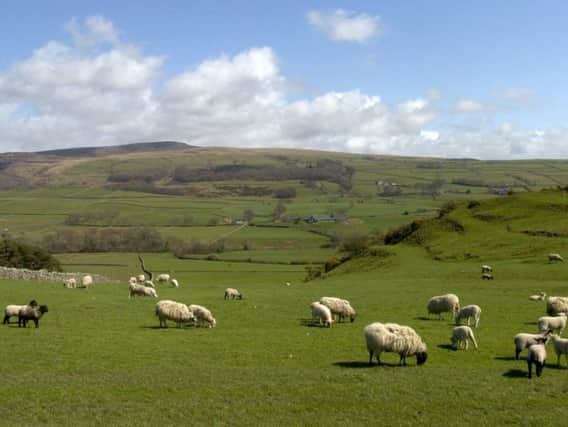Universal Credit's role in 'divided' rural Yorkshire communities


The Craven District Council area was one of the first in the UK to move over to the flagship benefit in ‘full service’, and charities locally have linked it to a rise in food bank use and increased stress on those receiving it, while farmers remain nervous about its impact on the self-employed.
Phil Sage, manager of Skipton Food Bank, sees Universal Credit as another issue behind a crisis in rural living which includes families priced out to other areas.
Advertisement
Hide AdAdvertisement
Hide AdShe said: “Craven is a very divided area. There are a lot of people who are very comfortable and there are large parts of North Yorkshire which are very comfortable. Skipton South, Fallowfield and Settle are really areas of deprivation. People struggle.
“Because it’s such a mixed pack, it’s not quite as in your face – rural poverty is much more hidden.”
But the Skipton Food Bank caters to people across the district, which includes the areas nearer the Three Peaks such as Ingleton and Clapham, which has seen an increase in referrals over the last few years. While the number of parcels given out in 2014 dropped from 725 to 612 the year after, the amount has since risen to 843 in 2017 – with 580 received in the first sixth months of this year.
A range of issues fuel this need, but Mrs Sage estimates that Universal Credit is responsible for around a 20 per cent increase in the last year.
Advertisement
Hide AdAdvertisement
Hide AdThe reforms also seem to be worsening the issue of unaffordable housing, she believes. Everyone including the food bank, the council and job centres have been “bending over backwards to stop people being evicted,” said Mrs Sage.
The average house price in Craven is £234,225, and the mean monthly private rent is £584, according to the National Housing Federation’s 2017/18 Home Truths Study, with the Yorkshire averages at £181,740 and £573.
Mrs Sage said: “Once you’ve lost your accommodation, it’s a very, very difficult situation to get out of.
“It’s all sorts of reasons, but the problem with Universal Credit is it starts you off on the spiral of being on the back foot.
Advertisement
Hide AdAdvertisement
Hide Ad“Even if you weren’t in trouble at first you probably will be within two or three months because of the way it’s designed. If you end up behind, it’s very difficult, then you end up negotiating.”
She added that recipients had dealt with long waits for first payments, and high costs come from delivering parcels to those moving from Employment and Support Allowance, who could be disabled, to Universal Credit.
People signed off work sick have been told they must go to assessments and travel “huge distances” on public transport – “then everything grinds to a halt if they can’t get to an appointment,” she said. Mrs Sage called on the Government to reduce administrative errors and waiting times for initial payments.
Self-employed farmers also continue to worry about how Universal Credit will affect their business as Working Tax Credit moves over to the benefit.
Advertisement
Hide AdAdvertisement
Hide AdThe National Farmers’ Union (NFU) has raised concerns around the application of the Minimum Income Floor – an assumed level of earnings – imposed on self-employed claimants after 12 months of trading and aims to calculate their reward.
The NFU responded to a Social Security Advisory Committee consultation last month. It said: “The NFU remains convinced that the imposition of a Minimum Income Floor for those judged to be in ‘gainful self-employment’ is a disproportionate measure. In addition, applying it based on an assessment of what is nothing more than monthly cash flow will severely disadvantage those with significant fluctuations in monthly income and expenditure who operate on an annual cycle, such as the majority of farmers.”